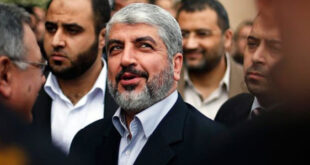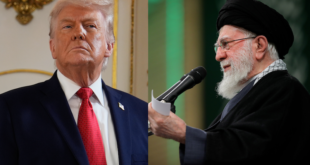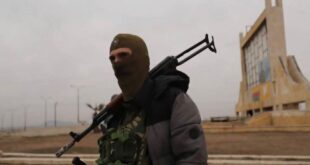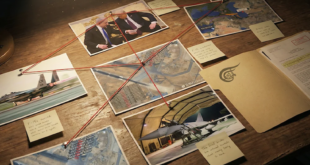RIYADH (AFP) — Saudi security forces shot dead one of the country’s top Al Qaeda leaders in the holy city of Medina Thursday, the latest of the group’s chiefs in the Kingdom to be gunned down in a shoot-out.
The clash that killed Saleh Al Ufi coincided with another operation in the north of the capital Riyadh and erupted just a few hours before newly-crowned King Abdullah Ben Abdul Aziz arrived in Medina.
It was the first such gunfight since King Abdullah assumed the throne of the oil-rich Kingdom this month and came days after Western governments warned fresh terror attacks may be imminent in Saudi Arabia, where suspected Al Qaeda militants launched a spate of bombings and shootings in May 2003, many targeting Westerners.
An interior ministry statement carried by state media said Ufi was one of two members of the “deviant group” — official terminology for Al Qaeda — killed when security forces returned fire as they tracked presumed extremists in Medina.
A third militant was wounded in the shoot-out and arrested, said the ministry, which identified Ufi as “wanted by security authorities.”
An expatriate, whose nationality was not specified, was seriously wounded and a security man hurt in the gunbattle, it said.
The SPA news agency reported late Thursday that funeral prayers were held at the Prophet’s Mosque in Medina for a Saudi soldier from the “emergency forces” who died in the shoot-out. Shortly before the gunfight, security forces arrested nine suspects at other locations in Medina in the west of the Kingdom, the ministry said.
Ufi, a former policeman in his forties and one of the Kingdom’s top suspected militants, was one of two men from a wanted list of 26 still at large. The other, Taleb Al Taleb, remains in hiding.
Ufi was reported to have replaced Abdul Aziz Al Muqrin, the notorious chief of “Al Qaeda in the Arabian Peninsula,” who was shot dead in a gunbattle in Riyadh in June 2004, shortly after his group posted gruesome pictures on the Internet of a beheaded American engineer they had abducted.
The beheading of Paul Johnson was the climax of a series of attacks against Western residents of the Kingdom.
Ufi was later reported to have been succeeded by Saud Al Otaibi, one of 15 militants killed during a three-day gunbattle with security forces in Al Qassim, north of Riyadh, in April.
Moroccan-born Younis Mohammed Ibrahim Al Hayari, who succeeded Otaibi, was also shot dead during a battle with security forces in the capital on July 3.
The interior ministry reported another incident in Riyadh Thursday in which human remains were found resulting from an explosion after security forces tracked down a suspect and besieged a residential location.
“Security forces pursued a member of this gang [of Al Qaeda suspects] who had infiltrated into Riyadh in disguise and ended up in a residential location north of the city,” the ministry said.
“The location was besieged … and one person inside surrendered to security forces, who came under heavy fire,” it said.
The security forces “silenced” the source of the fire and found “human remains resulting from a blast at close range.
[The remains] may belong to one body or more,” and procedures will be taken to identify them, it said.The ministry said one security man was lightly wounded in that incident while security forces seized weapons and explosives during the two operations.
King Abdullah arrived in Medina hours after the gunbattle that killed Ufi and went to pray at the Prophet’s Mosque, official media reported.
King Abdullah succeeded his late half-brother King Fahd on August 1, but had been de facto ruler of the ultra-conservative kingdom for about a decade.
The twin operations, which began at dawn and lasted several hours, followed a spate of warnings from Western embassies about possible terror attacks.
The US embassy in Riyadh and its consulates in Jeddah and Dhahran were closed on August 8-9, following information about possible militant strikes against American offices and citizens.
Australia, Britain, Canada and Germany also issued alerts about serious threats against their nationals in Saudi Arabia.
Following the warnings, Saudi authorities stepped up security measures around diplomatic missions and Western-inhabited residential complexes in the country.
The kingdom, the world’s top oil exporter, has been battling a wave of violence by militants linked to Osama Ben Laden’s Al Qaeda network in the past two years.
The violence has left at least 90 civilians, 43 security personnel and 115 militants dead, in addition to hundreds of wounded.
 Eurasia Press & News
Eurasia Press & News



